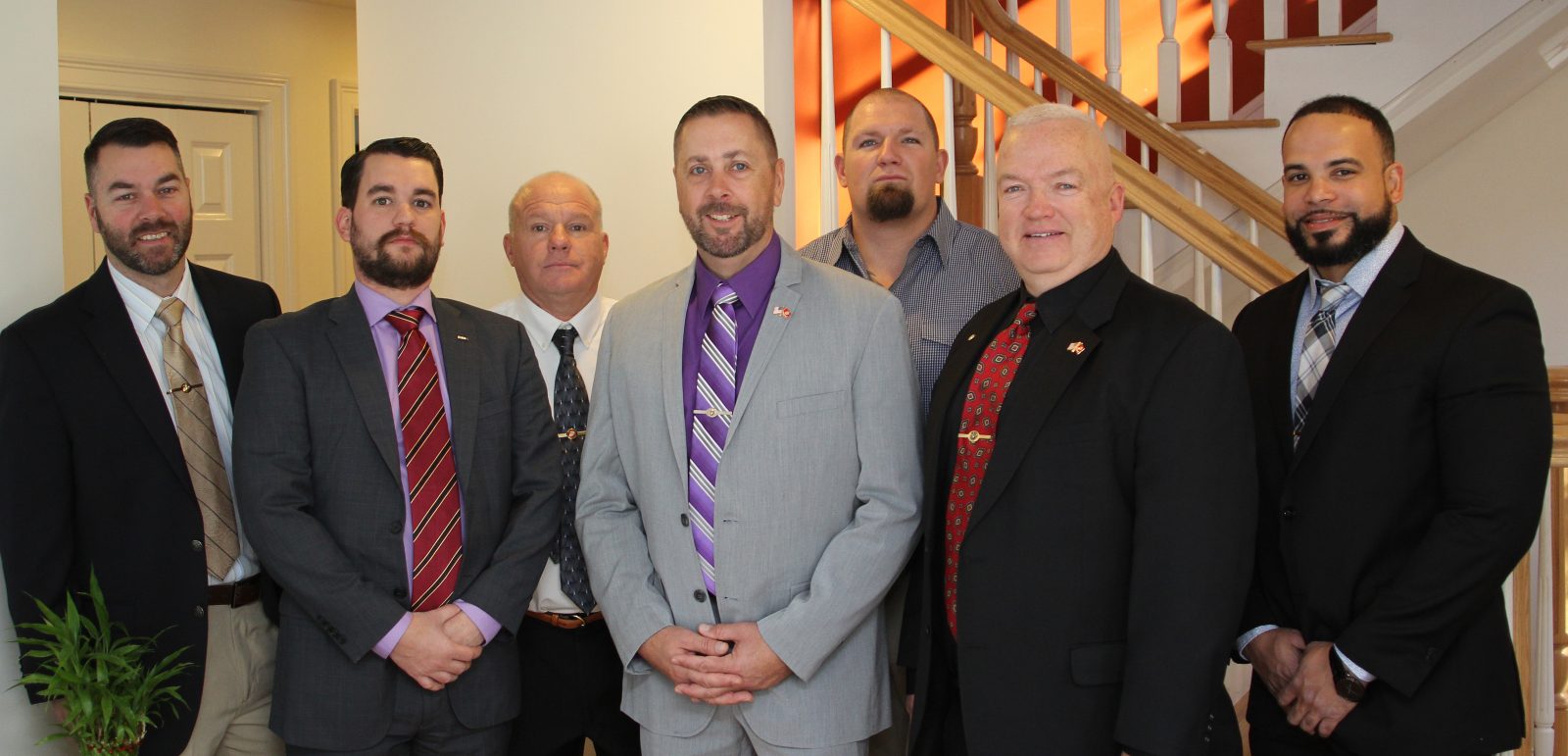LYNN — They came together on Monday to swap stories and renew acquaintances, but Lynn Police Department members who are also U.S. Marine Corps veterans said the bond they share underpins their work to help fellow veterans get services, including mental health help, they need.
Gov. Baker in August signed the BRAVE Act, an encompassing law benefiting veterans that includes a plan to combine forces with a Massachusetts college or university to, according to information posted on the state website, “conduct a study relative to veterans and military members suffering from mental health or substance abuse issues related to their military service and their needs in the criminal justice system.”
Responding to calls involving people with mental health problems is part of a police officer’s job and some of the calls involve veterans, said John Bernard, one of 17 Marine veterans who is a Lynn police officer.
“We go to a lot of mental health calls. When the opportunity arises, we talk veteran to veteran and remind them that someone understands them,” said Bernard.
Bernard and seven Marine veterans who are Lynn officers spent Monday attending the Semper Fidelis Society luncheon in Boston. The annual event is an opportunity to renew acquaintances and swap stories, but it also reinforces the lifetime of support one Marine provides another by virtue of serving.
“I could ask any of them for help,” said Michael Crosby.
Along with Ron Diaz and Kenneth Runyan, Crosby is younger than Edward Pettipas, Bernard and Charlie Griffin who trace their Marine Corps service as far back as the 1970s.
Pettipas and fellow member David McEnaney have attended the luncheon for almost 20 years. Other participants include Jeff Trahant, Henry Wojewodzic and Robert Mason.
The shared bond of police work and Marine Corps service helps the officers look out for one another and push to overcome perceptions that as police officers and veterans, they’re better off keeping feelings and concerns bottled up.
“We kind of have a double-whammy against us,” Crosby said.
He said making veterans more aware of services available to them and lengthening transition periods bridging military service and civilian life could help veterans address a variety of problems. It can be tempting to avoid asking for help in favor of tackling the transition to life outside the military alone.
“You’re taught to be a go-getter; you are expected to go it on your own,” Crosby said.
Bernard said many veterans are not fully aware of job placement, education and health services available to them. He said Marines and other military personnel leaving the service should be required to check in with town and city veterans services directors.
It took Diaz a year and a half to make the transition from serving as a Marine to living as a civilian. Ultimately, he said, the experience was a reality check.
“It involves accepting how society is. You accept you have problems you have to solve yourself,” he said.
Crosby said making the transition from the military to civilian life longer and “better” is important because transition services provided by the military abruptly end.
“When that door shuts, it locks,” he said.
But Marines understand from their first days in boot camp that the bond they share extends beyond wearing the uniform to helping veterans and reinforcing the bond through events like the Society luncheon.
“There are other guys who understand what you went through,” Runyan said.

